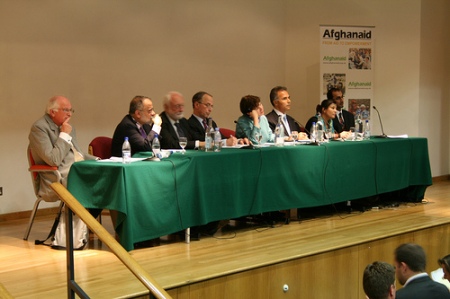My name is hari rud, and I am a ReliefWeb addict.
For those not in the know, ReliefWeb “is the global hub for time-critical humanitarian information on Complex Emergencies and Natural Disasters,” a website bought to you by the good people of the UN’s Office for the Coordination of Humanitarian Affairs. They have all sorts of useful information about people starving, living with AIDS or having their houses blown away by a hurricane.
Serious stuff. But the most important bit of ReliefWeb is its Vacancies page. They don’t give the data in their annual statistics report, but I’d wager a month’s unemployed salary that this is the most visited part of the site. What they do tell us is that in 2008 they posted 14,910 job adverts on behalf of NGOs, IOs the UN and, increasingly, those hard to name for-profit development companies. ReliefWeb is your one-stop shop for finding a job.
Albeit a job in some of the world’s less common tourist destinations. They do a map of where all the vacancies are. One look at this should make most sensible people wanting to start out in relief work think again. For example, at the time of writing, there are 104 vacancies in Afghanistan, and one in Barbados. Kind of wish I’d studied tourism at university now. But as I didn’t, and as the whole being ‘in between jobs’ thing is starting to wear a bit thin, I just have to have my daily fix.

Even when I had a job I’d regularly have a look at the vacancies page. In part, it’s good stress relief when you’re having a bad day and want to storm out of the office shouting ‘so long suckers!’ but have to make do instead dreaming about that next job, somewhere with better beaches and fewer bombs. It is also, I reckon, one of the best ways of seeing what’s really going on in the humanitarian world.
ReliefWeb publishes all sorts of spurious press releases issued by the humanitarian industry showing what fantastic work is being done. Elsewhere, there are an increasing number of outfits that try to do a slightly more subjective assessment of different organisations, things like Charity Navigator and Intelligent Giving (as an intern I was once tasked with finding the easiest way of increasing my organisation’s rating on one of these things). But for accurate ‘time-critical humanitarian information’ what you want is to regularly study the ReliefWeb vacancies page.
An earthquake in South Asia? Seismographs not needed; just watch the number of vacancies posted shoot up.
Wondering what such and such an organisation’s work is like in Sudan? Check out their history of vacancies there. If they’ve been constantly re-advertising a Country Director position for the last two years, it’s a fair sign they’ve been having a spot of bother one way or another.
Meanwhile, an organisation that posts nothing but unpaid internships might not have quite the professional approach you were looking for.
Interested to know who’s won that big call for bids, or who’s given in and taken all that proffered USAID money? Well just have a look see who’s advertising for a dozen new project managers and technical specialists.
Keen to know what the next big development fad is that’s about to take off? Keep an eye out for a sudden spate of Value Chain or DRR or Climate Change Advisors.
It’s also great for keeping track of people one once know: ‘wow, they’re advertising his job, thank god they’ve finally got rid of him…’
Some adverts are just wonderfully bizarre. Management International Systems, one of those new breed of big-buck development contractors, is currently advertising for a Junior Cold Fusion Developer. They may be part of Coffey International, but I’m still surprised they’re going in for experimental nuclear fusion.
Cherie Blair, wife of war-criminal-in-waiting Tony, is advertising for an admin assistant. At first I thought it was to help arrange her next magic crystal healing session but turns out she’s started an organisation to help female entrepreneurs. Who’d of thought.
Want to follow in the footsteps of Columbus? MdM are after a consultant for an exploratory mission to Haiti. Which begs the question, what would have been the course of 15th Century European exploration if carried out by over-paid, under-TOR’ed consultants?
The variety of jobs on offer is sometimes startling. Are you a gynaecologist? Have you always wanted to work in Afghanistan? Then apply here today! Know how to communicate with mosquitoes and get them to change their nefarious ways? Well this acronym are after a malaria behavioural change specialist. Know how to defuse an unexploded bomb without just kicking it (or getting someone else to kick it)? MAG need you! Someone else is looking for a surfing trainer in Indonesia, which sounds more fun.
And I swear I once saw the UK Government advertise for a Butler for its Kabul Ambassador. Prior experience of organising entertainment for heads of state, ironing flack-jackets and keeping the G&Ts cool when the generator packs up was essential. I sadly can’t find that one in the archives, but truly, it wasn’t far off.
As a ReliefWeb addict, through careful study of the subtle signs, one can trace the changing contours of the industry, the successes and failures, the money and where it’s going. Bit like seeing into the Matrix or something.



